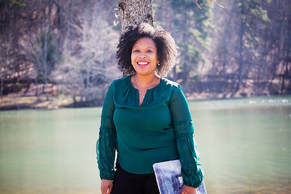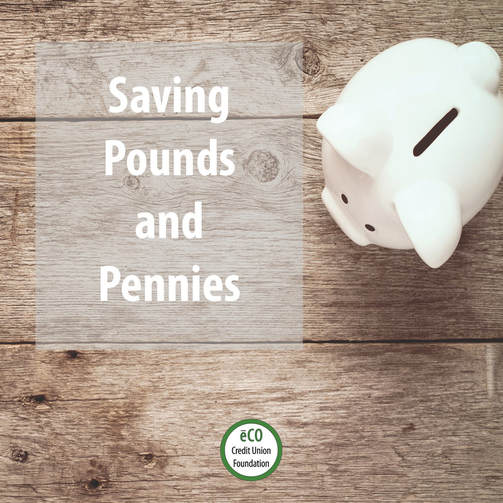|
One of the very first stages of a breakup is denial. As I sat there looking at my credit score wondering what I had to do to get here and how on Earth I was going to get out, a simple phrase kept running through my mind, “You cannot solve a problem until you admit that you have one.” Financial literacy isn’t something I learned much about growing up. It’s the ability to use knowledge and skills to manage financial resources effectively for a lifetime of financial well-being. I had heard people talking about being debt free and living a life with minimal expenses but I wasn’t really sure how to get there. After college, my main goal was finding a job so I didn’t take time to establish a monetary plan for my future because I was completely oblivious to the challenges that lie ahead. Four years later, and now with the hefty addition of grad school loans, I found myself in a state of turmoil because my money was funny but I certainly wasn’t laughing. Nowadays anybody with a Facebook page can call themselves an industry “expert”, so it took me a while to find some people and resources that I could actually trust. In my quest for knowledge, I’ve found the best method is to release your inhibitions and embrace discipline. Your money will always be funny if you never take charge and learn to manage it. How you do that is up to you. I used a recollections planner to throw a little razzle-dazzle on Dave Ramsey’s suggestion to use cash envelopes. I took the advice of Myleik Teele and got honest with my friends about my need to engage in free activities. I downloaded worksheets and studied the words of Rod Reedy, which helped me establish a new financial destination. But the most valuable tool in my hunt for freedom has been the one on one time spent with my financial advisor, the money makeup artist, Tracie Threadford. She’s helping me turn my knowledge into action with monthly meetings and virtual consultations. We’ve set goals, developed a budget, implemented maintenance skills, and developed a debt elimination plan. My husband and I would like to buy a home and Tracie’s guidance helps support our vision. Now I must admit, breaking up with my bad money habits has not been easy. I’ve been angry at my lack of knowledge and poor sense of judgment. I tried bargaining with my goals and expenses, but I was only cheating myself with that. I was depressed about my future because falling into debt is easy but climbing out is slow and tedious. But I’ve finally accepted that you cannot do better until you know better. You can only dream at the level you’re exposed to and my goal is to lay a new foundation for my family. I want to establish a mindset of saving and wealth instead of barely getting by and instant gratification. My goal is to exemplify diligence and build habits that lead to a less stressful lifestyle. Taking the time to learn new strategies and invest in your future leads to a multitude of benefits for generations to come. Financial literacy may not be the most exciting topic or a lesson deemed important enough to teach in schools, but it is certainly a necessary building block for any successful adult.
0 Comments
From the moment I married my husband, we dreamed of the trips we would take together. Our trip of a lifetime? Europe. It was a big and far-fetched dream, especially five years ago when we were just starting our careers and didn’t have much stashed away in savings. But, it all starts with a dream, right? I am proud to say that this dream has become a reality, as we will be on our way to Europe this Spring! I can’t believe it. If we can do it, so can you. I can boil down our success to four main points. If you can stick to these four things for the next five years, maybe you’ll be packing your bags for your dream trip! 1. Setting a goal. This is the easy part- choosing where you want to go! Start planning out your dream trip. The sticker shock is real but giving yourself a realistic goal in the beginning will set yourself up for success in the end. I’m a goal-oriented person, so a real number with a real purpose made me much more driven to get to the end goal. 2. Be patient for promotions. This part is hard for the planner side of my brain. But, we saved not hundreds but thousands of dollars by waiting for promotions on plane tickets and travel arrangements. There are so many travel blogs that will give free and helpful advice on when and how to find out about the best deals in the travel industry. For my husband and I, we subscribed to a site that would notify us when a certain flight went on sale. After booking our trip (during the promotional season), we waited anxiously to receive emails, knowing what number we were looking for. It took about two months, but we got the absolute lowest airfare to Europe that is possible. We literally saved over $1,000 on airfare alone. 3. Saying no. This part is the hardest, but also vital to success in hitting your goal without debt. We have said no to friends who have asked us to go to dinner with them because there was no more money allotted for eating out. We had to buy popcorn at the dollar store and watch a movie on Netflix because we were out of “Date Night” money! We decided that our first house would be an older, smaller house. We have made a lot of sacrifices on this road. But, now that our trip is booked and waiting on us, I can tell you it was worth EVERY no that we had to say along the way and every penny saved. 4. Sleeping on it. Don’t make large purchases in one-day. Make sure that you go home, let it settle in, and sleep on it. The next day, you may realize that going on your dream trip is more of a priority than purchasing a new car. For us, there were several major home renovation projects that we wanted to work on after buying our house a few years ago. But, we decided to wait in order to pay cash for our trip. We chose experiences every time. (Also, dreaming about Italian gelato helped, too.) Going on a vacation that is already paid for is SO much more enjoyable. We can’t wait to spend money, guilt-free, on our trip. It’s our hard-earned money. I hope that these three tips will help your family save over the next year(s) for the trip of a lifetime. If you want to learn more about savings, click here to go through the module in our ēCO Educational Center. Written by: Georgia Hux Some people will tell you that it’s impossible to eat healthy and save money. I’m here to tell you they are wrong. Five years ago, after my husband and I got married, we lived in a one bedroom, one bath apartment and made just enough money to pay our bills with a little left over (if it was a good month). Six months into marriage, I decided that I was tired of the on-again-off-again dieting; I was ready for lifestyle changed (think: everything in the pantry being thrown into the trash can). With our salaries, I knew I would have to be creative to make this change affordable- but also lasting. We will celebrate five years in June., and I am very proud to say that while the queso and ice cream have won a few times, I have stuck to my healthy lifestyle all of these years without going over $100 per week in groceries. Are you saying, “There is no way! Eating healthy is so expensive and takes up so much time. There is something she isn’t telling us,”? Trust me- it took a lot of research, planning and discipline to be in this part of my journey. However, every part of my plan is about as practical as a lifestyle change can come! Here are four ways you can start trimming off those pounds and have financial freedom: Make Pinterest your friend. I have found all of my favorite recipe blogs and food techniques from Pinterest. Did I mention a Pinterest account is free? I love that you can create a “Recipe” board and save everything in one place. It makes life easier to be able to reference your saved recipes when you’re making your weekly plan and prepping for the grocery store. Plan your meals and list before you shop. Whatever you do, DO NOT walk into the grocery store without a list in your hand. I guarantee you that you’ll spend at least $20 less with a list, if not more. Take an hour the night before your grocery store trip. First, plan for the necessities, and then, plan out your meals for the week. I may be particular about this part, but I prefer to map out my favorite grocery stores and plan my list according to the layout of the store. Personally, it keeps me from getting distracted by that bag of Caramel M&M’s at the end of the aisle that calls to me. Shop what’s on sale. We eat a lot of veggies and fruit. Let’s say I put oranges on my list for that week, but when I arrive at the store, apples are on sale for a $1 less than the bag of oranges. I will grab the apples instead. I am not brand loyal; I buy what’s on sale. So, if I have almond milk on my list, guess what brand goes into my cart? If you answered, “the least expensive,” then you are correct! Also, always compare generic brands with the name brands. They will almost always save you money and taste the same (or better!). Stick to your budget. Our grocery budget stays at $400 every month. We make it work. If we only have $50 left at the end of the month, we try to clean out our pantry and make a meal out of what we have and hope there is some type of meat on sale that week! Try your hardest to not go over the budget that is set for your groceries. Food should account for 5-15% of your total budget- including eating out. Do the math for your family, and try to stick to a challenging but doable goal. Speaking of a healthy lifestyle, we are hosting one of our biggest fundraisers of the year- our 3rd Annual Charity Trail Run- next Saturday, April 14 at Red Mountain Park. We have a 1 Mile Fun Run for the beginners, and a 5K and 10K Trail Run for the more advanced. We have a “Sleeping In” option, and you don’t even have to show up (but you’ll be supporting a great cause AND receive a t-shirt)! One hundred percent of our proceeds will go to supporting financial literacy in the Birmingham metro area! Click here to register. Written by: Georgia Hux April 6, 2018 |




 RSS Feed
RSS Feed